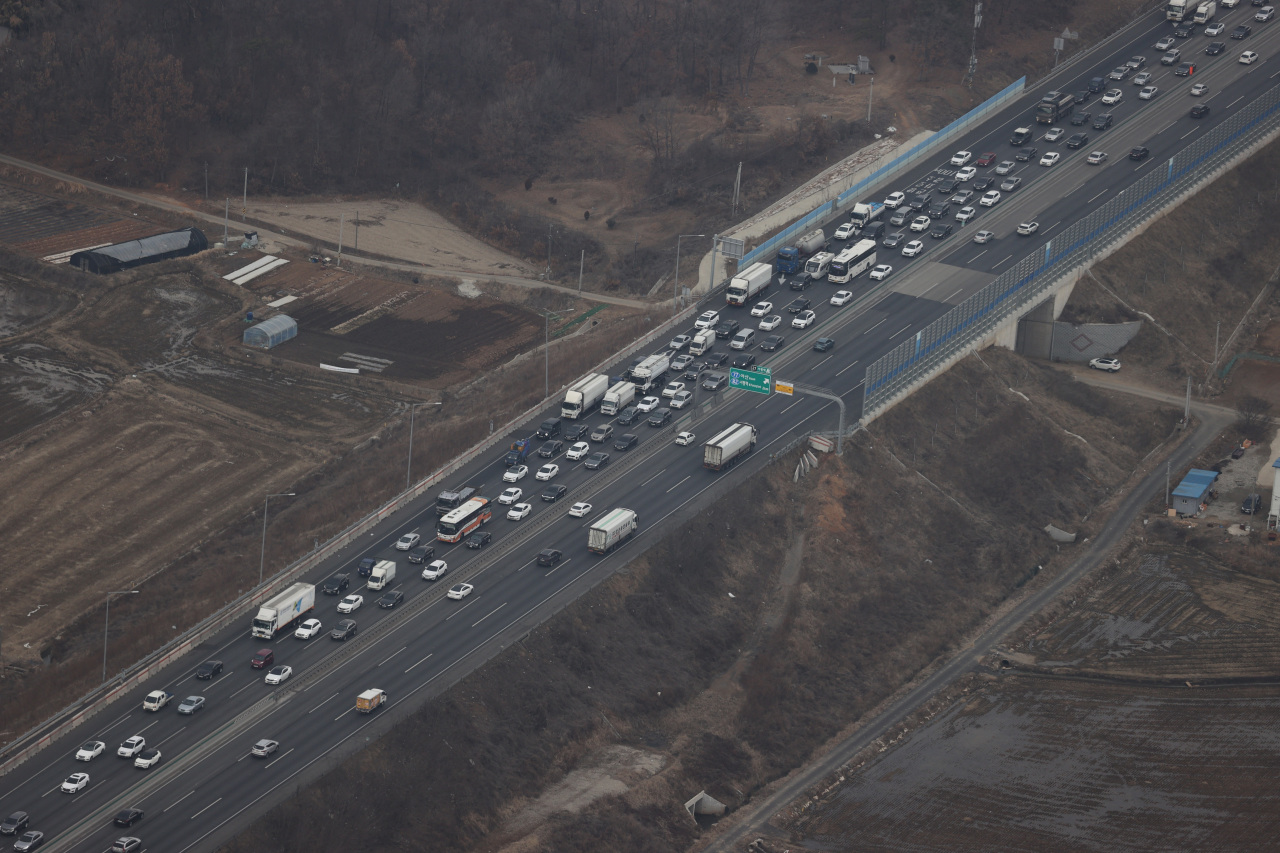Road traffic slows over Lunar New Year migration despite COVID-19
By YonhapPublished : Feb. 11, 2021 - 12:10

Major highways across South Korea began to clog with heavy traffic Thursday as many people headed to hometowns despite the COVID-19 pandemic to celebrate Lunar New Year's Day.
Many southbound sections of the Gyeongbu Expressway connecting Seoul to the southeastern port city of Busan, including those near Osan and Cheonan, both south of Seoul, were congested due to heavy traffic as of early Thursday morning, according to Korea Expressway Corp.
Cars were also crawling on several southbound sections of the Seohaean and Yeongdong expressways and other major highways nationwide.
South Korea began the Lunar New Year holiday on Thursday, which will last through the weekend, including Lunar New Year's Day on Friday.
To fend off a potential upsurge in COVID-19 infections during the traditional holiday when travel and family gatherings increase, the government has kept in place a nationwide ban on private gatherings of five or more people.
To discourage the Lunar New Year migration, the government is permitting sales of only window seats on trains and withholding its annual exemption of toll fees on highways during the holiday.
KEC predicted some 3.78 million vehicles will hit roads across the nation on the first day of the holiday on Thursday.
As of 9 a.m, the expected travel time was 5 hours and 30 minutes from Seoul to Busan, 4 hours from Seoul to the southwestern city of Gwangju and 3 hours and 40 minutes from Seoul to the northeastern city of Gangneung, according to KEC.
Outbound traffic from Seoul was expected to reach its peak at around noon before starting to soften around 5 to 6 p.m. Inbound traffic was also expected to be heavy around noon, according to KEC. (Yonhap)







![[KH Explains] How should Korea adjust its trade defenses against Chinese EVs?](http://res.heraldm.com/phpwas/restmb_idxmake.php?idx=644&simg=/content/image/2024/04/15/20240415050562_0.jpg&u=20240415144419)












![[Today’s K-pop] Stray Kids to return soon: report](http://res.heraldm.com/phpwas/restmb_idxmake.php?idx=642&simg=/content/image/2024/04/16/20240416050713_0.jpg&u=)